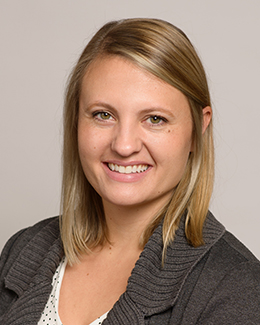Kaela Varberg, PhD
Kaela Varberg, PhD
Regular Member

Independent Investigator
Children’s Mercy Kansas City
Career Journey
Dr. Varberg's graduate training was based in reproductive biology with an emphasis on cell physiology and developmental origins of health and disease. She received her doctoral degree in Cellular and Integrative Physiology from the Indiana University School of Medicine in Indianapolis, IN under the mentorship of Dr. Laura S. Haneline. Dr. Varberg's postdoctoral training remained within reproductive biology, but with a new emphasis on trophoblast development and placentation. She completed her postdoctoral training at the University of Kansas Medical Center in Kansas City, KS under the mentorship of Dr. Michael J. Soares where she expanded her expertise from primary patient cell culture to human trophoblast stem cell culture and mutant rat models. Dr. Varberg remains fascinated by maternal/fetal interaction during pregnancy and the field of developmental origins of health and disease, or the impact of developmental events on long-term health outcomes. As an independent investigator at Children’s Mercy Kansas City, Dr. Varberg is developing a research program that utilizes epigenomic approaches to identify conserved mechanisms of placental development.
Questions
1. What inspired you to choose reproductive sciences?
Development is a brief, yet critical window of time during which the intrauterine environment supports fetal growth and facilitates the health trajectory for the lifetime. Although inherently challenging to study, interventions during this critical window offer incredible potential for long-term health returns!
2. Favorite part of your job?
I love opportunities to be creative and make new connections--whether it be connecting with new peers, resources, or new perspectives to broaden the way we think about our research.
3. How did you hear about SRI?
I learned about SRI through my postdoctoral mentor, Dr. Michael Soares.
4. What makes SRI your scientific home and how has it helped your career?
SRI has naturally become a scientific home for me through my involvement in committees. Participating on an SRI committee has provided me with a strong sense of scientific community as well as numerous other benefits including networking, professional development, and learning opportunities. I started out on the In Training Member Committee as a postdoctoral fellow and transitioned to the Early Career Committee and liaison to the Career Development Committee as an Assistant Professor.
5. What would you say to someone considering going into the reproductive sciences field?
Reproductive science is a critical area of research that is needed to support not only maternal health, but fetal health and the health of future generations. It is an incredibly rewarding field both scientifically and professionally.
6. Favorite benefit of SRI?
The built-in scientific community of mentors and peers that I have the chance to interact with throughout the year and especially at the annual meeting.